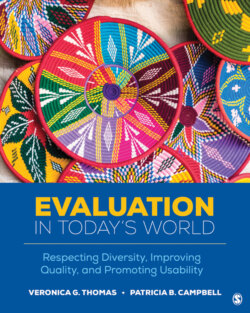Читать книгу Evaluation in Today’s World - Veronica G. Thomas - Страница 136
На сайте Литреса книга снята с продажи.
Rose Butler Browne
ОглавлениеRose Butler Browne was the first African American woman to graduate (in 1921) from Rhode Island College (now the University of Rhode Island) and the first African American woman to receive a doctorate in education (in 1939) from Harvard University. She is the first known African American woman to have had an evaluation project as the focus of her dissertation (Hood, 2001) and, as a result, is acknowledged as an early African American female pioneer in evaluation (Frazier-Anderson & Bertrand Jones, 2015). Browne was deeply concerned about African American children’s failure to reach their age norms in reading proficiency. Because of this concern, she evaluated the effectiveness of the Craig Method, which adapted many of the teaching strategies of the Montessori program to the specific needs of children in American culture. Browne believed that the Montessori tools would introduce children living in poverty to materials that supported their development and encouraged their curiosity.
Courtesy of the University Archives, University of Rhode Island Library.
During her career, Browne was on the faculty at various colleges including Virginia State College (Richmond), West Virginia State College (Institute), and Bluefield State College in (Bluefield) West Virginia. As a pioneer for social justice, Browne obtained national publicity when she refused to send students for teaching in West Virginia because the state’s board of education was paying African American teachers less than white teachers. The publicity and subsequent shortage of teachers led to a change in the policy. In 1969, Browne coauthored (with James W. English) her autobiography, Love My Children: The Education of a Teacher.
